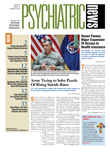The Senate began debate on its own health care overhaul legislation (HR 3590) on November 21.
The House narrowly passed the Affordable Health Care for America Act (HR 3962) with a 220-215 vote on November 7 after a grueling weekend debate. The bill would extend insurance coverage to 96 percent of nonelderly legal residents by 2019, according to the Congressional Budget Office (CBO). Medicaid eligibility would expand to most people with incomes of up to 150 percent of the federal poverty level, which is currently $33,075 for a family of four. Eligibility is now limited to certain defined classes of people, such as pregnant women, with incomes of up to 120 percent of the poverty level.
The bill would require all individuals who must file tax returns to obtain health insurance and would offer subsidies to individuals to buy it through new exchanges, or marketplaces if they could not get it through their employers. The exchanges would include a government-sponsored plan, or so-called public option. The bill would require all but the smallest employers to offer health insurance to employees, donate to a fund, or pay a penalty.
Further, the legislation would ban several unpopular insurer practices, including denying coverage to individuals with preexisting conditions.
“This legislation really fits with APA's principles and the issues it focuses on,” Robert Cabaj, M.D., chair of APA's Council on Advocacy and Government Relations, told Psychiatric News.
The bill includes numerous provisions supported by APA and other mental health advocates that could greatly expand access to care for people with mental illness throughout the country. These provisions include coverage of mental health care among the basic health care services offered by all insurance plans in the exchanges. Also, the bill would require that those services be offered at parity with other medical services.
“The idea that there will be easier access to health care will benefit everyone,” Cabaj said.
The “remarkable” expansion in Medicaid also is expected to benefit many people with untreated serious mental illness because many such people are childless adults who currently do not qualify for Medicaid and have difficulty obtaining other coverage, said Laurel Stine, a lobbyist for the Bazelon Center for Mental Health Law.
Medicaid expansion is a critical piece of health care reform for people with mental illness since it already pays for over half of all publicly financed mental health services in the United States and more than 25 percent of all mental health services nationally.
APA Makes Position Known
APA President Alan Schatzberg, M.D., sent a letter to House Speaker Nancy Pelosi (D-Calif.) shortly before the House vote supporting passage of the legislation. He emphasized numerous key features of the bill that would benefit people with mental illness, such as extending until 2011 a temporary restoration of reimbursement cuts for psychotherapy and other mental health services.
Stine praised the bill for expanding the integration of mental health and other health care services by requiring coverage of mental illnesses in the exchange plans and limiting the use of carveouts for mental health care. She also noted that mental health workers would be included in future programs featuring medical homes. These programs designate a single clinician to coordinate a patient's care among all of their health care professionals with the aim of reducing redundancies and improving access to needed care.
One of the many challenges that health care reform could face is Congress's traditional reluctance to allow large-scale implementation of pilot projects to be in legislation. If large-scale demonstration projects combining mental health services with other health services prove effective, it's critical that Congress implements them throughout the system, according to Thomas Bornemann, director of the Carter Center's Mental Health Program.
“Medicare and Medicaid should be leaders in this,” Bornemann said.
Physician-Fee Reform Passed Separately
APA and other physician groups were concerned when House leaders dropped a provision from their health care reform bill that would have repealed Medicare's controversial physician-payment formula but cost $210 billion over the next 10 years. However, Democratic leaders agreed to support a separate bill (HR 3961) to eliminate the pending 21.5 percent cut in physician reimbursement for 2010. The payment reform legislation has been critical in maintaining physician support for the overall health care reform bill, according to lobbyists.
“Taken together, HR 3961 and HR 3962 represent the fundamental reform of our health insurance and health care system that is needed in order to protect and expand patient access to care and continued choice of physicians. Passage of both bills is essential,” Schatzberg said in a written statement.
The physician-payment issue is one of many that are expected to arise during Senate consideration of its health care reform measure. Although the Senate rejected a similar physician payment reform bill in October, clinician groups hope to add the measure to the overall health care overhaul.
The Senate is expected to vote on passage of health care reform sometimes this month.
